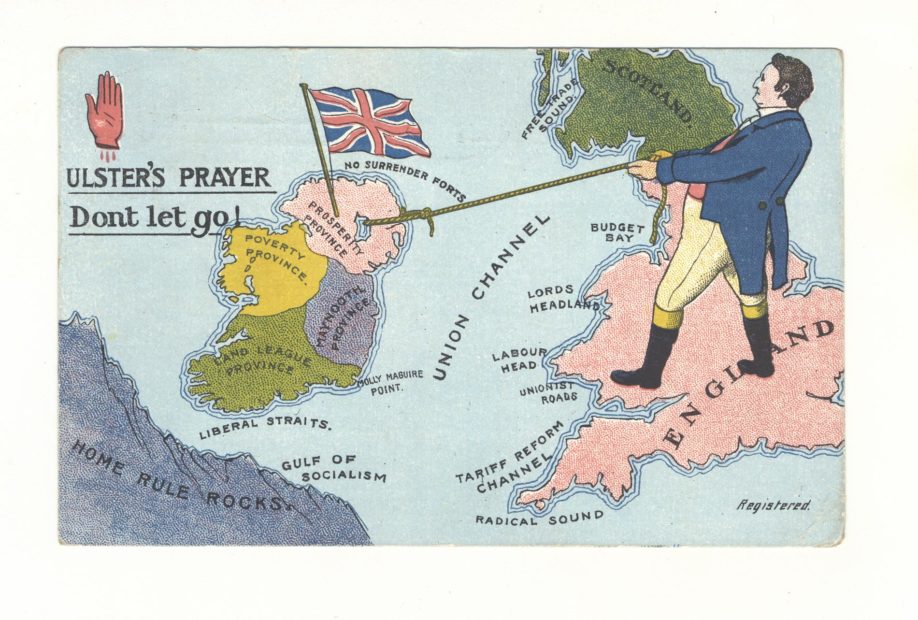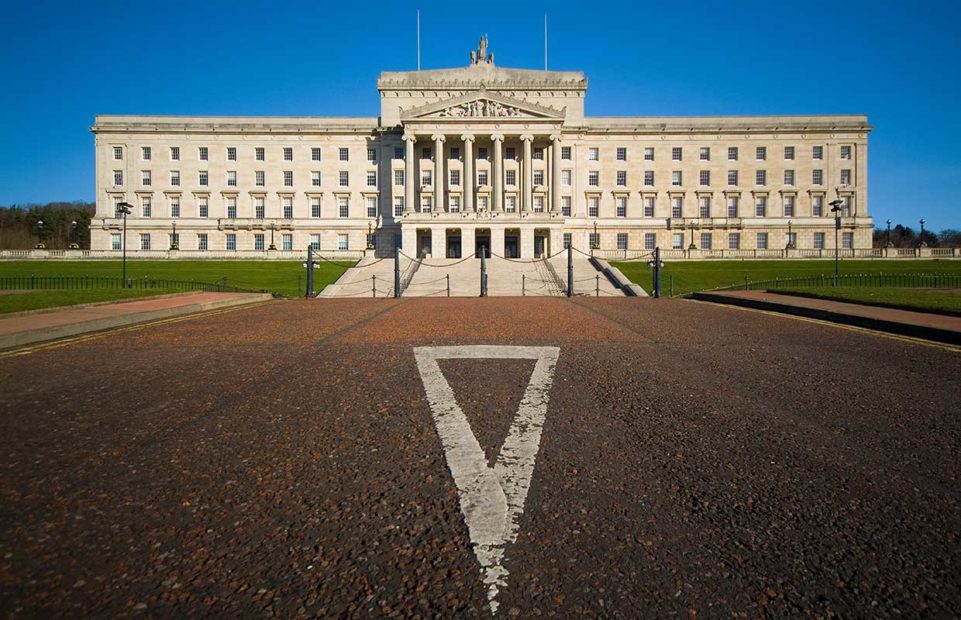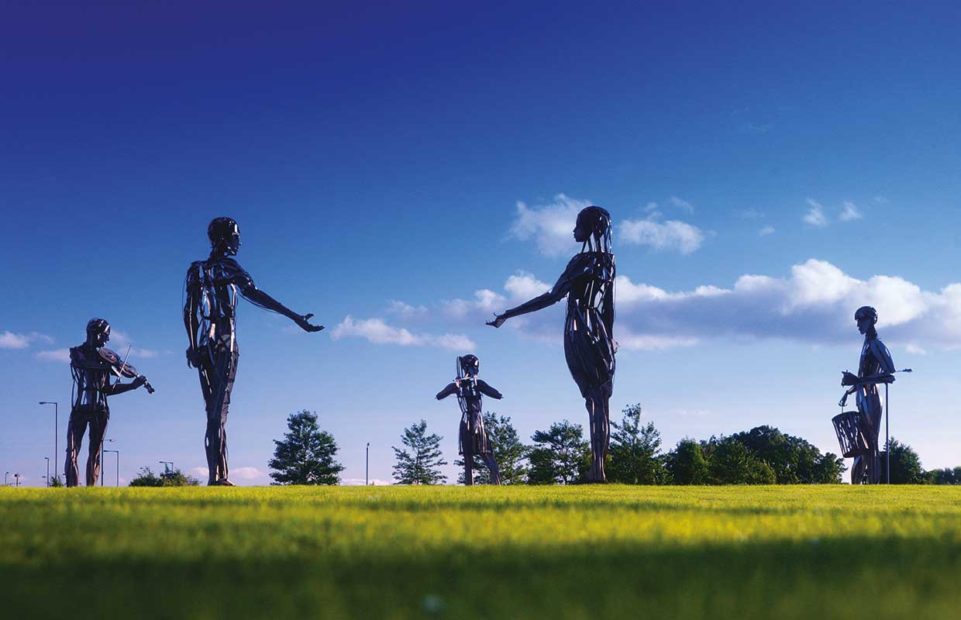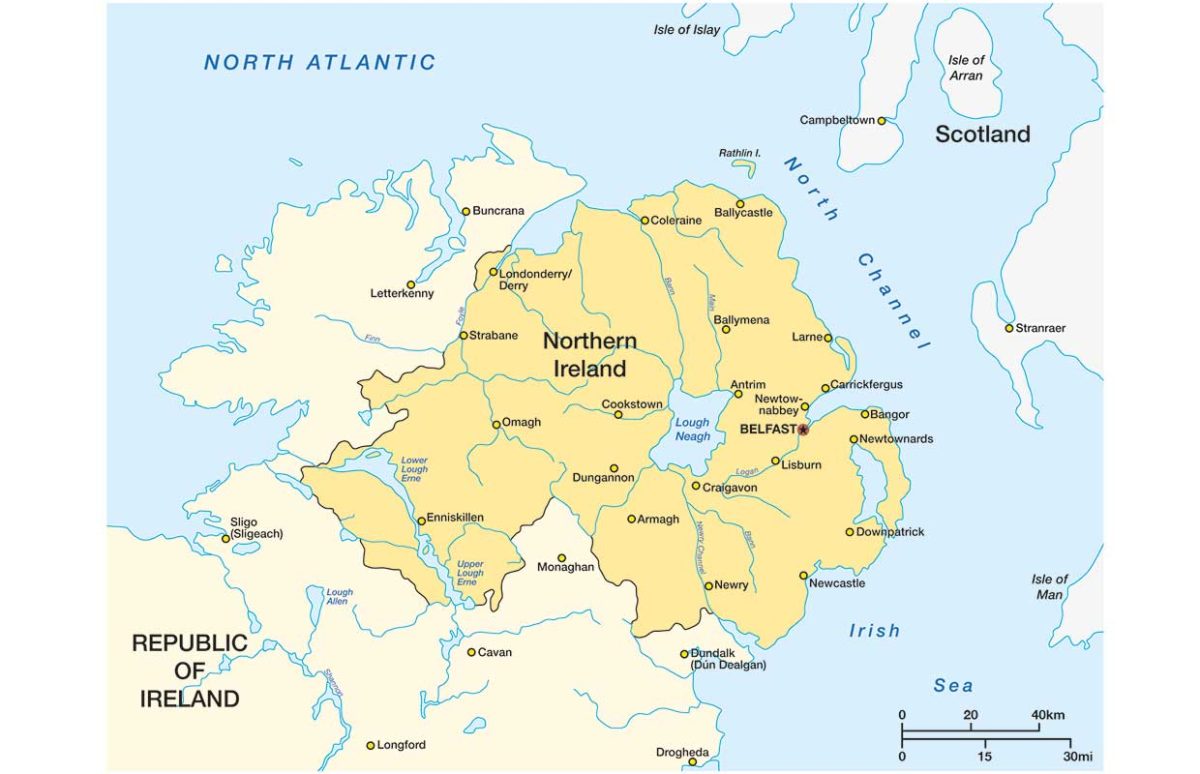1921 has been described as a year of anniversaries in Northern Ireland, marking 100 years since the partition of Ireland which led to the creation of Northern Ireland. But nobody seems sure which dates to mark or celebrate, or indeed if they should be marked at all. A century after the border was created, and in raised tensions due to the new sea border resulting from the Brexit negotiations, Northern Ireland is having a bit of an identity crisis.
The Partition stemmed from decades of demands for Home Rule from Britain by Irish Nationalists. A Home Rule Bill had finally passed in Westminster just as WWI broke out, but was suspended for the duration of the war. By 1918, the Nationalists had lost patience and set up their own parliament, leading to the War of Independence (1919-1921).
In the midst of this war, in December 1920, the Government of Ireland Act was passed. It laid out a partition of the island, with Home Rule for the south, and the six most north-easterly counties remaining part of the UK, as Northern Ireland, also with a self-governing assembly.

The six counties were part of the historical province of Ulster, where there was a Protestant, Unionist, majority. But three historical Ulster counties, Donegal, Cavan and Monaghan, were excluded in a compromise by Unionists determined to create an entity with an inbuilt Unionist majority. Donegal, Cavan and Monaghan each had small Catholic majorities that would have swung the balance.
The Government of Ireland Act came into force on 3 May 1921, and was followed by elections and the opening of the first Northern Ireland Assembly by King George V on 22 June.

The War of Independence ended in a truce on 11 July 1921, followed by the Anglo-Irish Treaty on 6 December. The south was now the Free State of Ireland.
Creating a Border
The border originally put in place was supposed to be negotiable, but three years later it was made permanent. During the “Troubles” in the 1970s and 80s, when the British Army was deployed in Northern Ireland, border crossing posts were highly militarised. However, they were dismantled after the Good Friday Agreement in 1998 which brought an end to the Troubles. Although mainland British ports and airports maintained passport control posts even for visitors from the European Union, an exception was made for the Northern Irish border with Ireland, which became control free. It’s just one of the exceptions in this province. For example, anyone born in Northern Ireland has the right to both a British and an Irish passport if they wish.

The centenary of Partition was always going to be a thorny subject. Many in Northern Ireland do not consider it a cause for celebration, either because they would prefer a united Ireland or because it is a reminder of decades of sectarian violence. A recent BBC poll found that only 40% of the population thought it should be marked. Covid restrictions add to the complications, and most of all the Brexit negotiations that led in January to the effective creation of a border between Northern Ireland and the rest of the UK. Although it has no physical presence, placed theoretically in the Irish Sea, it has meant a lot of disruption in trade and the requirement of vast quantities of paperwork.
Many in Northern Ireland feel that the UK government showed its disregard of the province and its people (who voted against Brexit) in the negotiations and this has led to increased calls for a referendum on reuniting Ireland in the medium term. The same BBC poll found that while 55% of those polled in Northern Ireland and 59% in the Republic believed that Northern Ireland would still exist in 10 years, when asked to project 25 years into the future, 51% of people in the North and 54% in the Republic said they thought the Northern Ireland would have left the UK.
 Shine Bright AMC File 17 Borderline asks whether Brexit is reopening old wounds in Ireland over the disputed issue of the border.
Shine Bright AMC File 17 Borderline asks whether Brexit is reopening old wounds in Ireland over the disputed issue of the border.
Copyright(s) :
lesniewski/Adobe Stock
National Museums NI
Tourism Northern Ireland
Tag(s) : "anniversary" "border" "Brexit" "commemoration" "history" "Irish history" "Northern Ireland" "UK" "UK politics"





